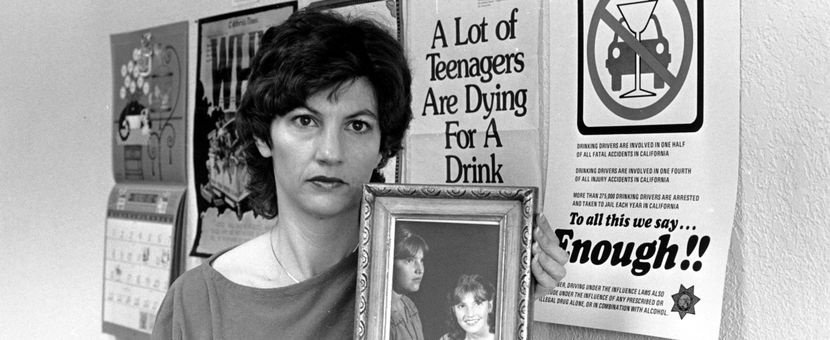1. The ‘No’ Vote- Chile, 1988
After overthrowing the democratically elected President Allende, General Augusto Pinochet ruled with an iron fist- imprisoning, torturing and murdering thousands of his opponents and changing the constitution to allow him to rule unchecked. After 8 years of dictatorship Chilean citizens were given a referendum as to whether Pinochet should continue remain in absolute power for another 8 years. Thanks to a dynamic, people-power lead campaign (including some of the most inventive uses of television advertising up to that point and the adoption of the optimistic slogan 'joy is coming') the ‘No’ vote won by 56% and the 16 ½ year long rule of Pinochet was brought to an end.
2. Drunk driving is made illegal- USA, 1980

Can you believe that until 1980 there were very few legal consequences for driving while intoxicated in the United States? Neither could we. When California realtor Candy Lightner founded Mothers Against Drunk Driving (MADD) after her 13 year old daughter was killed by a repeat DWI offender her and her organisation were able to successfully fight for changes in laws and shifts in public attitudes which have saved thousands of lives.
3. The Saffron Revolution- Burma, 2007

Although triggered by the military junta’s decision to remove subsidies on the price of fuel, the Saffron Revolution was a series of non-violent protests lead primarily by Buddhist monks, students and women that sought to end government oppression and free a number of Burmese political prisoners including Ang San Suu Kyi. Although the protests themselves were met by a ruthless government crackdown, the military junta was dissolved in 2011 and Aang San Suu Kyi was released from house arrest in 2010.
4. The Australian government recognises the land rights of aboriginals- Australia, 1992
Until 1992 land on which aboriginal Australians had been living for thousands of years was classified as terra nullius- belonging to nobody. This meant that previously aboriginal people had no legal recourse to prevent large companies such as Nabalco mining extensively for minerals on their land. However, thanks to the efforts of activists such as Eddie Mabo the law was changed and the land is now officially recognized as the sovereign territory of aboriginal people.
5. The Ford Sewing Machinists Strike- UK, 1968
Despite working the same hours and being just as essential to the production process, the women of the Dagenham Ford plant were, as part of a regrading exercise, categorized as Class C workers- of less value and therefore worthy of less pay than their Class B male counterparts. The workers, who made car-seats, staged a walk-out in protest which lead to halting of production on all Ford cars at the plant. The walk-out was instrumental in the passing of the 1970 Equal Pay Act, enshrining into law for the first time in British history that men and women should receive equal pay for equal work.
6. The Velvet Revolution- Czech Republic, 1989

Before November 1989 any citizen who expressed a different opinion to the authoritarian regime in what was then Czechoslovakia faced persecution from the secret police- including blacklisiting and imprisonment. However, after over 40 days of activism including mass student protests and a general strike, this entirely non-violent revolution brought down the totalitarian state and ushered in the country’s first ever democratic elections.
7. Women of Liberia Mass Action for Peace, 2003
This is truly an amazing story. By 2003 the Second Liberian Civil War had reached new peaks of brutality in an already exceptionally unforgiving conflict- more than 250,000 had been killed and thousands of children were captured and forced into combat or sexual slavery. A group of women, lead by social worker Leymah Gbowee, decided that enough was enough and began to sing and pray for peace in a fish market in the capital. Soon WOLMAP was formed. Methods were endlessly inventive, including a sex strike (refusing sex for their partners until the end of the war) and a very public sit-in at the presidential palace in Ghana where peace talks were being held, thereby preventing delegates from leaving until peace was negotiated. Their efforts reignited stalled peace talks and ended the 14 year civil war. The group were also essential for mobilizing support for the election of Ellen Johnson Sirleaf, Africa’s first elected female head of state.
Have you been inspired by these stories? Join our global movement for change now, sign up to become a Global Citizen and fight for the things that matter to you.